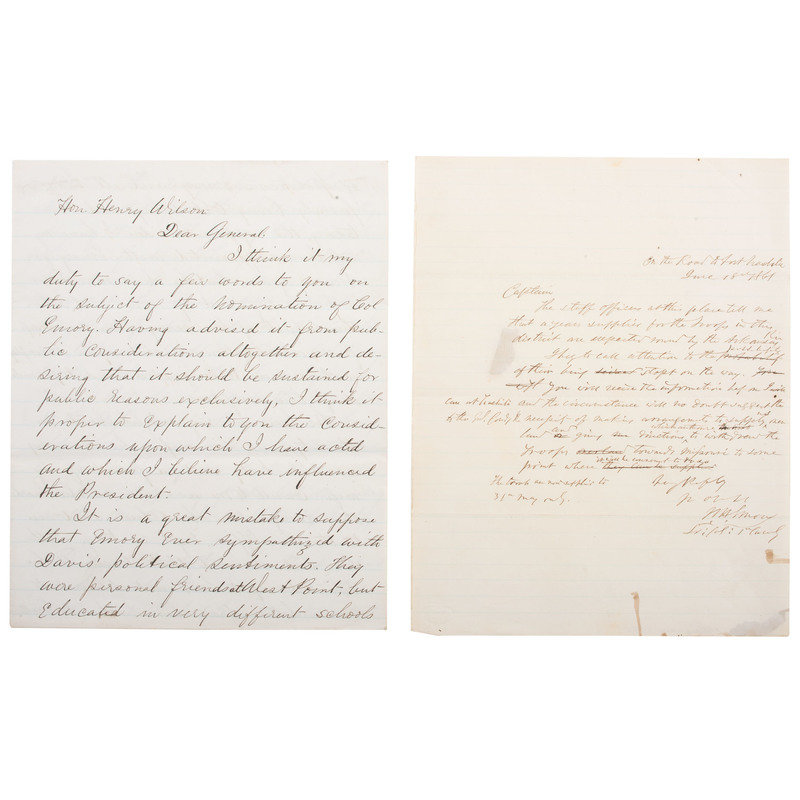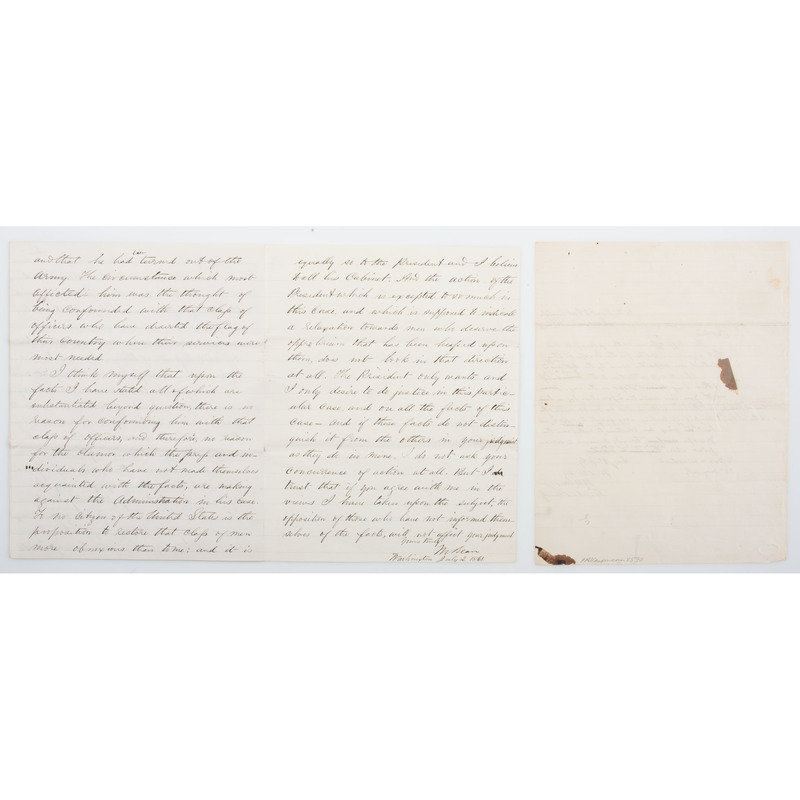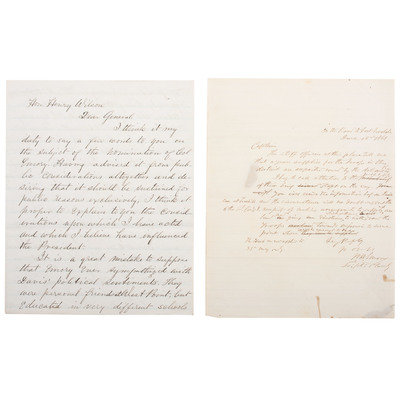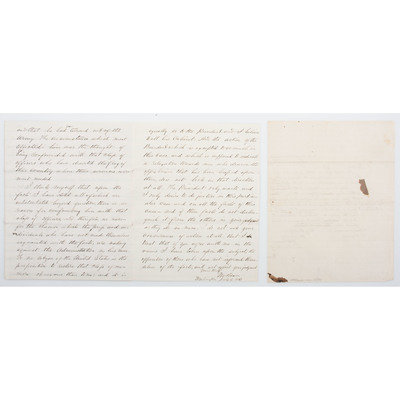Condition Report
Contact Information
Lot 78
Lot Description
Lot of 2 war-date letters concerning the military career of William Hemsley Emory (1811-1887). A graduate of West Point, Emory served in the army for five years before resigning in 1836 to work as a civil engineer. He returned in 1838 and served as a topographical engineer, specializing in cartography and conducting border surveys along the United States' borders with Canada and Mexico. During the Mexican War, Emory was stationed in California as chief engineer in the Army of the West under General Stephen Kearny. He remained out west during the Civil War, though he elected to withdraw his troops from the poorly appointed forts in Indian Territory. Emory's wartime accomplishments include commanding a brigade in the Army of the Potomac, commanding a division in the Port Hudson campaign, and serving in all the major battles in the Shenandoah Valley Campaign of 1864 as commander of the 19th Corps. The most notable of these was the Battle of Cedar Creek, where he saved the Union Army from a crushing defeat. Emory was mustered out of the volunteer army in 1866 but did not stop serving until he officially retired with the rank of brigadier general on July 1, 1876 after forty-five years of service and many honors.
William Hemsley Emory (1811-1887). Surveyor and civil engineer who served as an officer in the United States Army Corps of Topographical Engineers. ALS, 1p, 7.75 x 9.75 in., "On the Road to Fort Washita." June 18, 1861. Addressed to "Captain." Emory writes about the withdrawal of his cavalry to Missouri, along with the resupplying of the troops: "The staff officers at this place tell me that a years supplies for the troops in this district are expected moved by the Arkansas River. I have to call attention to the possibility of their being stopt [sic] on the way. . . the circumstances will no doubt suggest this to the [illegible] the receipt of making arrangements to supply us over land and giving direction which authorizes to withdraw the troops toward Missouri to some point where it will be convenient [?] to do so. The troops are now supplied to 31st May only."
Blair, Montgomery (1813-1883). Lawyer, politician, and Postmaster General to Abraham Lincoln. ALS, 11pp, 7.75 x 9.625 in., Washington, D.C. July 2, 1861. Addressed to Senator Henry Wilson, Chairman of the Senate Committee on Military Affairs and later Vice President under Ulysses S. Grant. Upon the outbreak of the Civil War, Emory had accidentally resigned his commission but quickly reapplied. Although he was reappointed, there were suspicions of his loyalties because of his relationship with Confederate President Jefferson Davis. Here, Blair explains the circumstances of Emory's resignation and defends his allegiance: "It is a great mistake to suppose that Emory ever sympathized with Davis's political sentiments. They were personal friends at West point, but educated in very different schools of politics. . . He heard that the Army Officers were generally resigned, that Genl. Scott had resigned and gone to Richmond, that Washington was environed by Rebel forces and had been vacated by the President, and that the Government was in fact at an end. His whole conduct afterwards, and all the time, was that of an officer acting in good faith for those interests of the Government, with no idea whatever of abandoning its service on any contingency. . . The circumstance which most affected him was the thought of being confounded with that class of officers who have deserted the flag of their country when their services were most needed."



